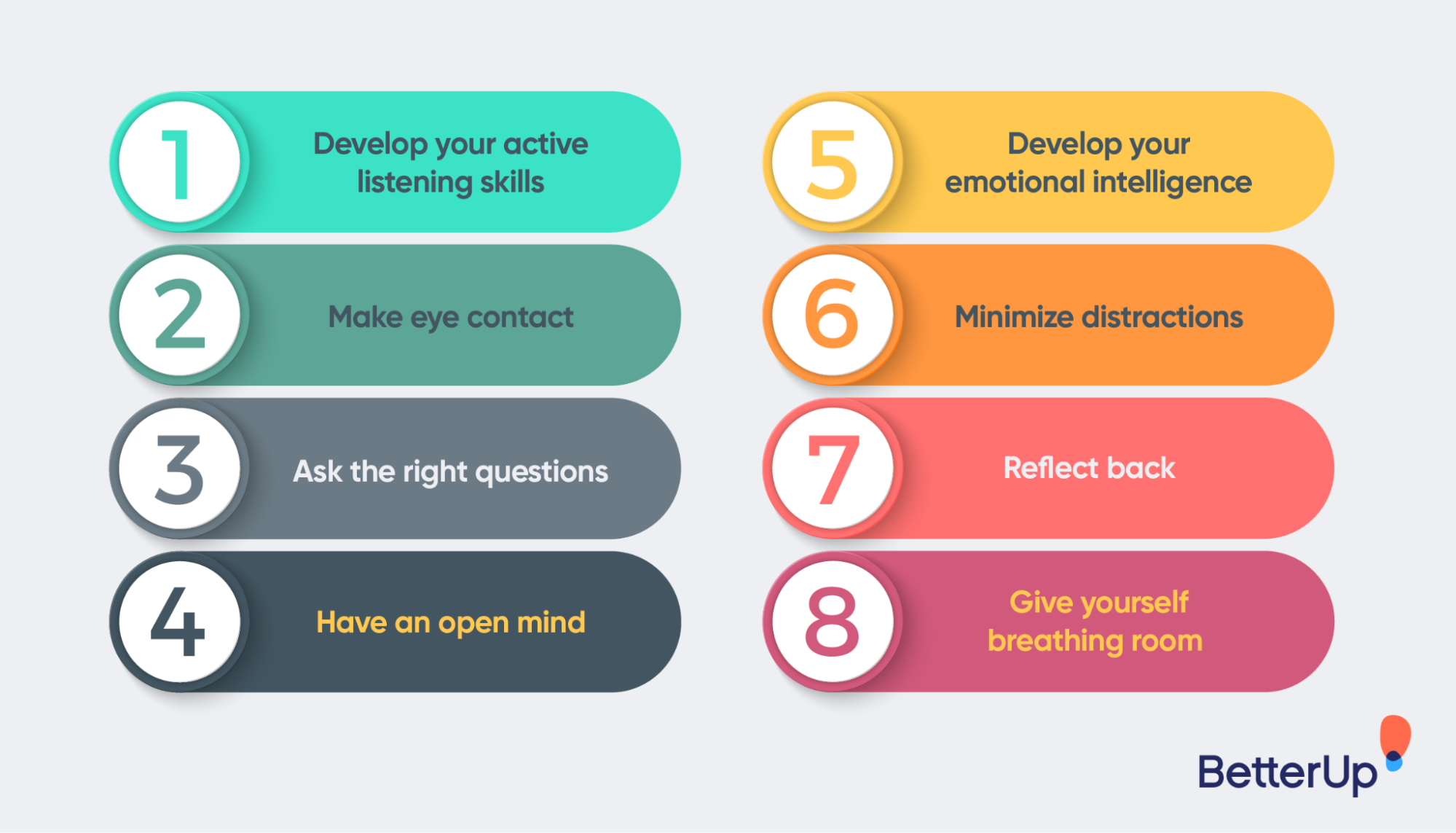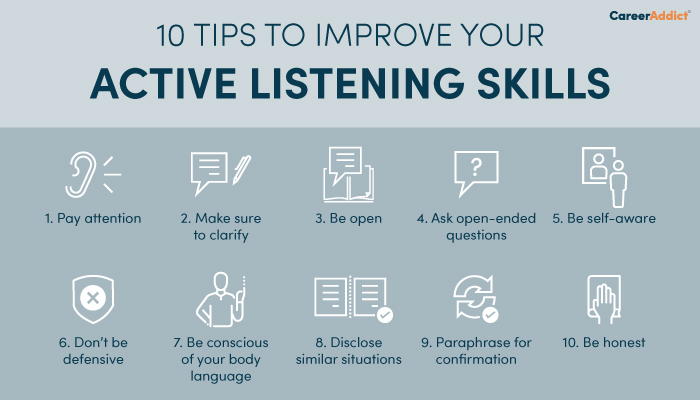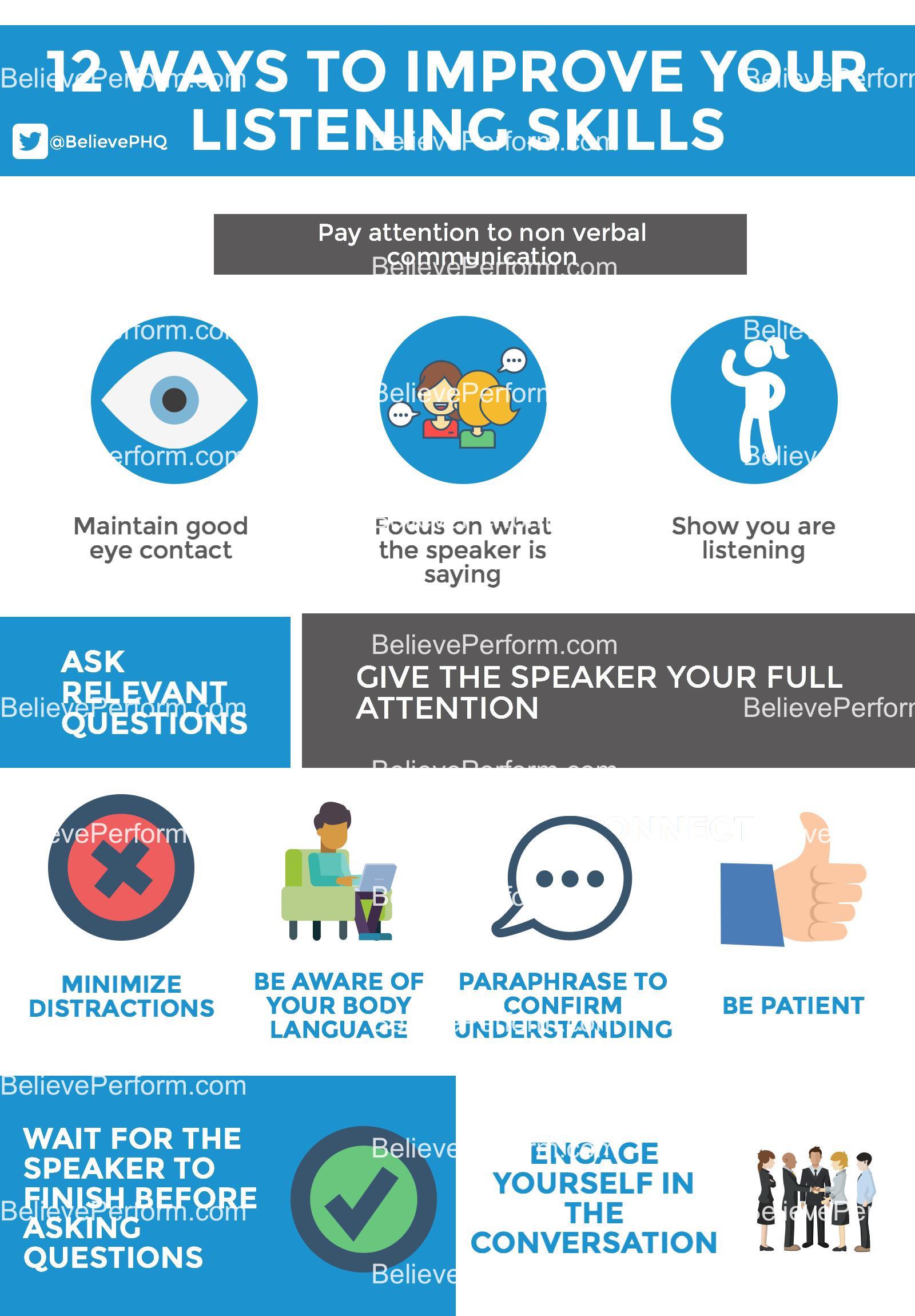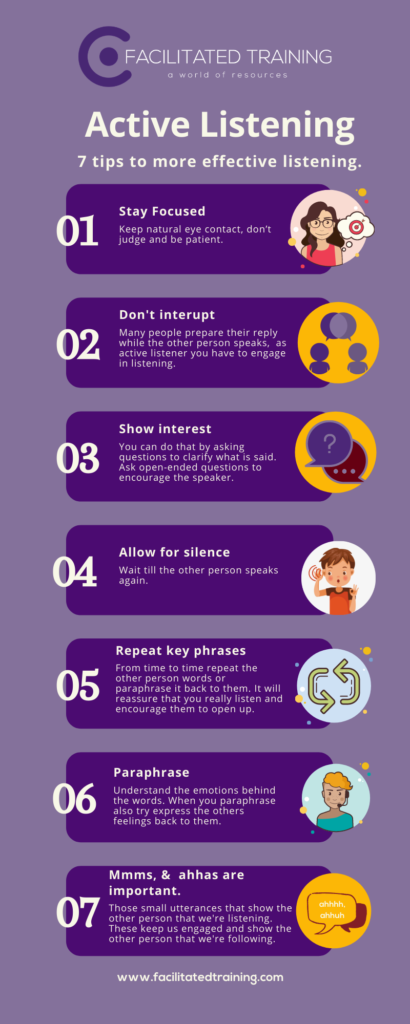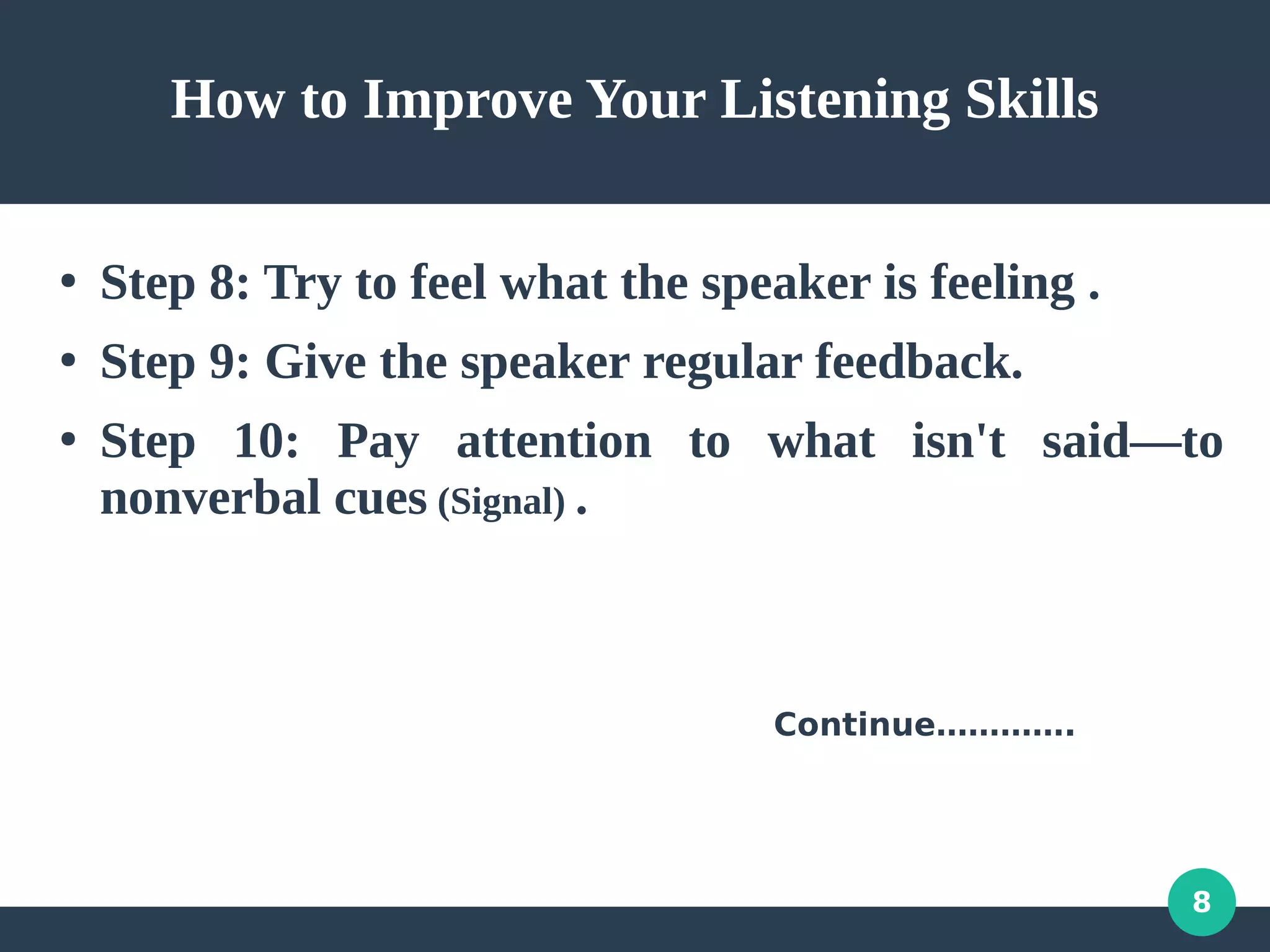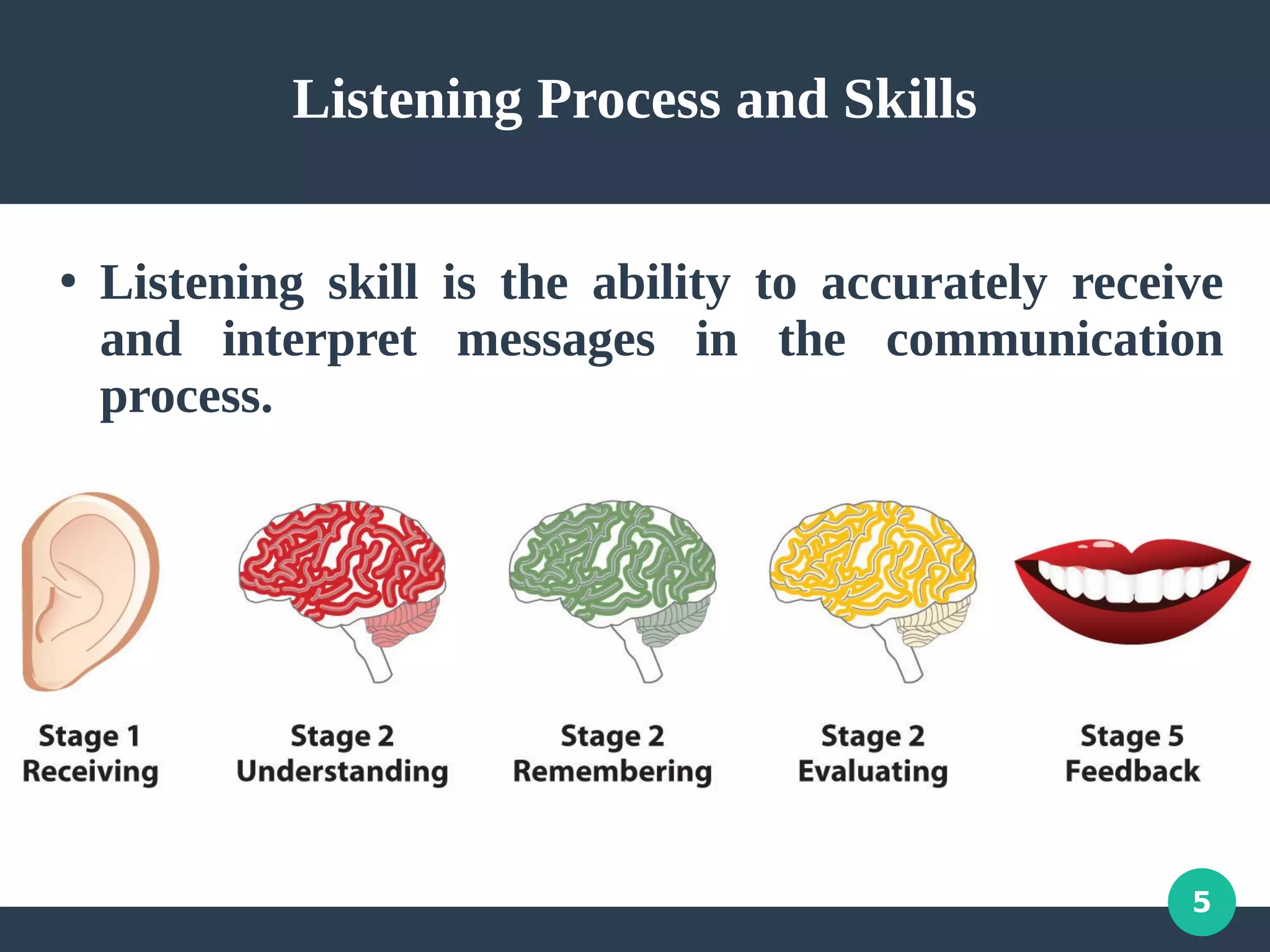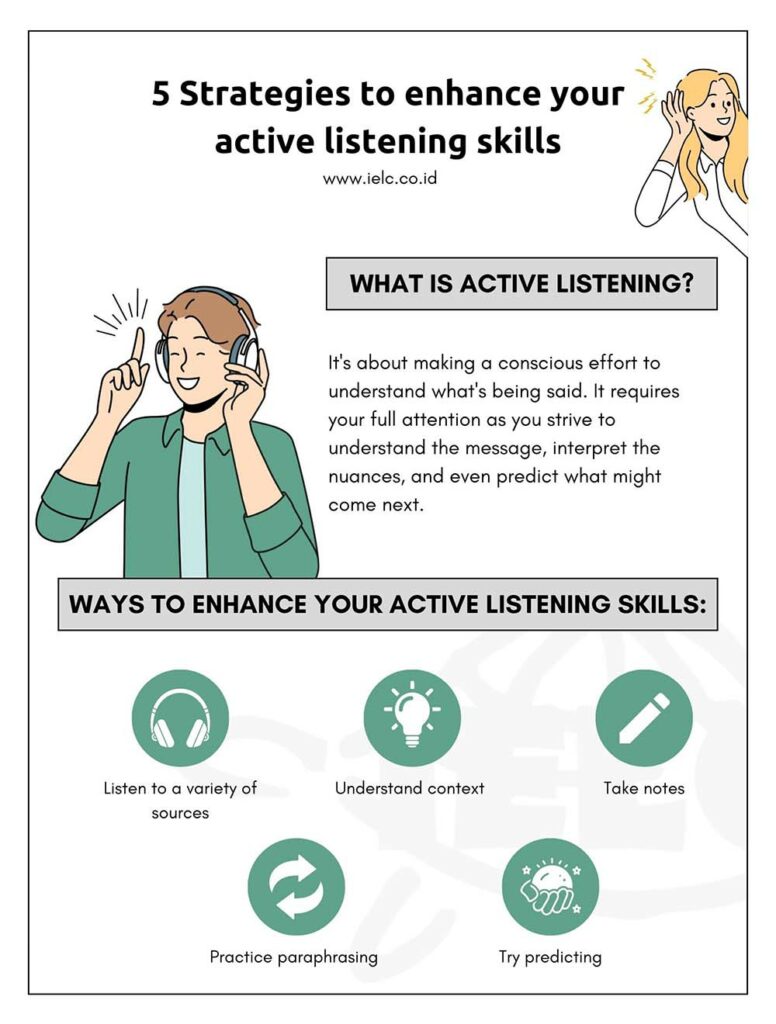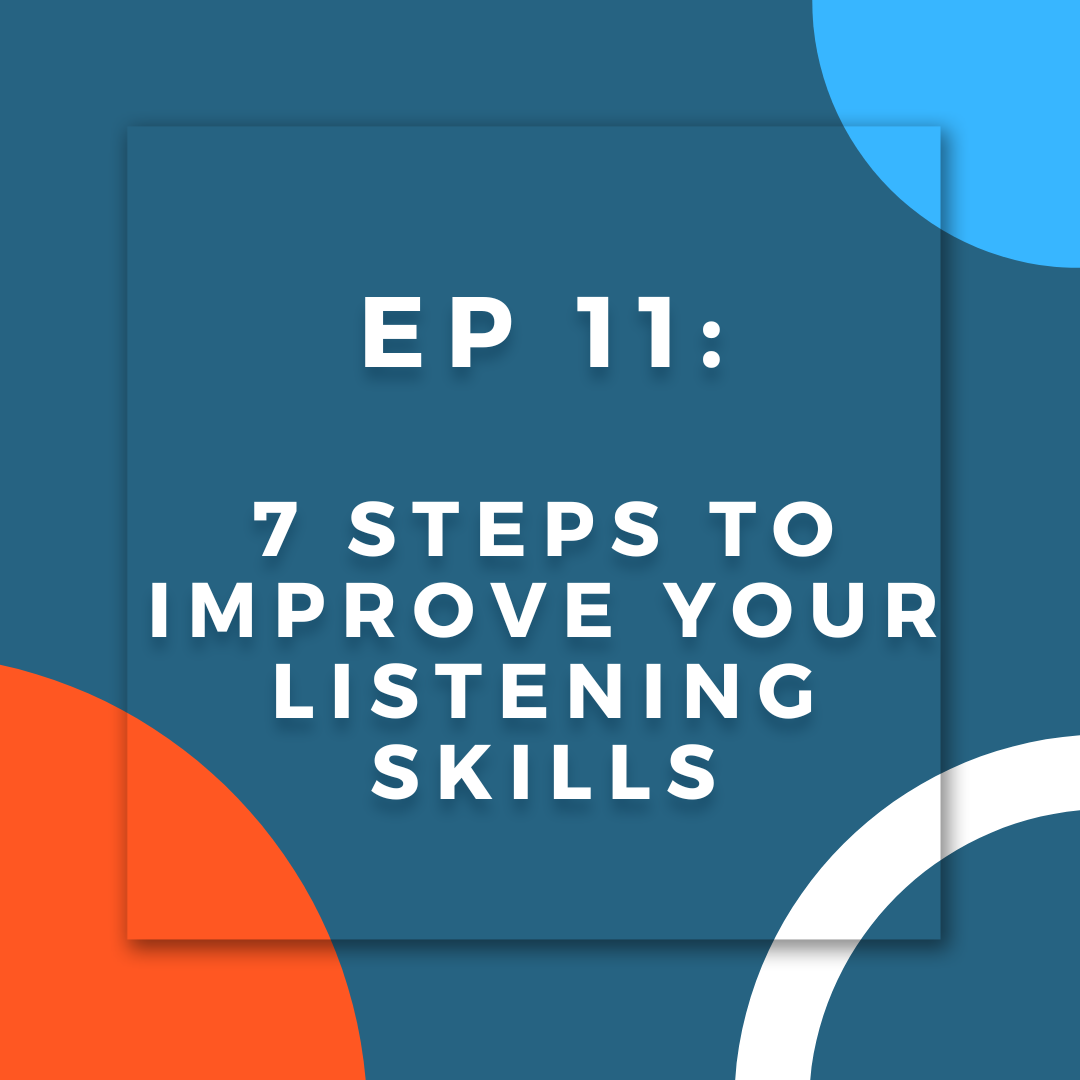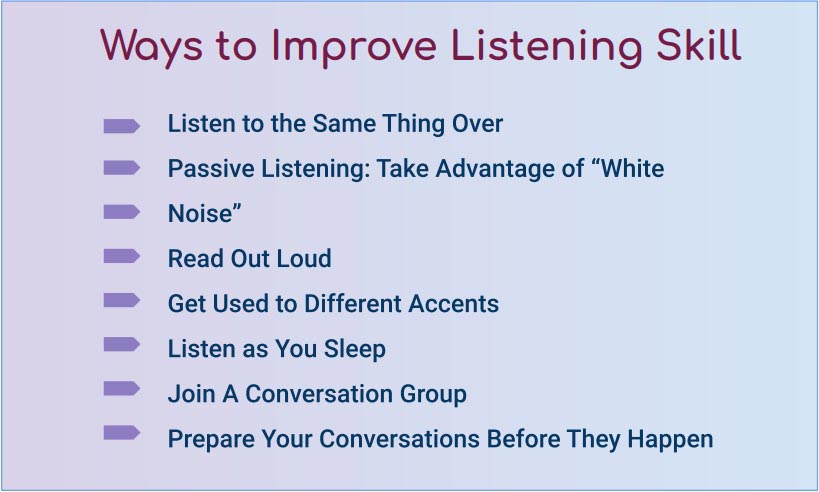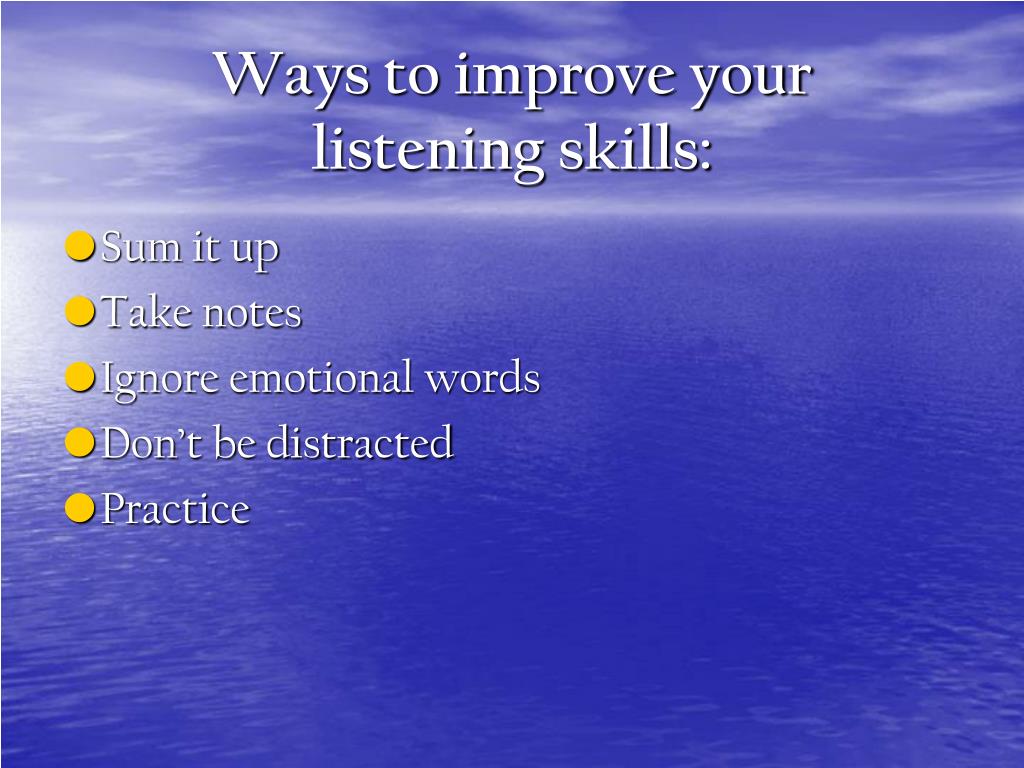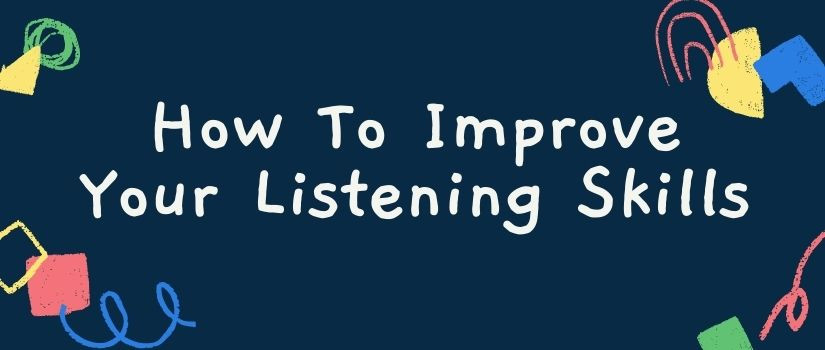Steps To Take To Improve Listening Skills

Communication breakdowns are costing individuals and businesses dearly. Mastering active listening is no longer a soft skill, but a critical survival tool in today's fast-paced world.
Poor listening skills are linked to misunderstandings, missed opportunities, and damaged relationships. This article outlines actionable steps to improve your ability to truly hear and understand others, boosting both your personal and professional success.
Focus Your Attention
Eliminate distractions. According to a study by the University of California, Irvine, it takes an average of 23 minutes and 15 seconds to fully refocus after an interruption. That's time you can't afford to lose.
Practice mindfulness. Be present in the moment and actively choose to listen rather than formulate your response.
Make eye contact. This shows the speaker that you are engaged and respectful of their message. Studies have shown that maintaining eye contact increases perceived trustworthiness.
Show That You're Listening
Use verbal affirmations such as "I understand," "Yes," or "Okay." These simple cues encourage the speaker and confirm your attention.
Nod occasionally. Nonverbal cues like nodding demonstrate active engagement. Be mindful of cultural differences, as nodding can have different meanings in different contexts.
Provide brief summaries. Paraphrase what you've heard to ensure understanding and allow the speaker to clarify any misinterpretations.
Defer Judgment
Avoid interrupting. Let the speaker finish their thought before jumping in with your own opinions or counterarguments. Patience is key.
Listen empathetically. Try to understand the speaker's perspective, even if you don't agree with it. See the world through their eyes.
Challenge your own biases. We all have preconceived notions. Be aware of your own biases and actively work to overcome them to understand what is being said.
Respond Appropriately
Ask clarifying questions. Don't be afraid to ask for more information if something is unclear. Effective questioning is a crucial part of active listening.
Provide constructive feedback. Offer your thoughts and insights in a supportive and helpful manner. Avoid criticism and focus on solutions.
Be honest and open. Share your own experiences and perspectives to build a stronger connection with the speaker.
Practice, Practice, Practice
Seek out opportunities to listen actively. Consciously apply these techniques in everyday conversations. Start with small changes and gradually build your skills.
Record yourself listening. Analyze your behavior to identify areas for improvement. This can be a revealing and helpful exercise.
Get feedback from others. Ask trusted friends or colleagues to observe your listening skills and provide constructive criticism. A 360-degree assessment can be invaluable.
The Bottom Line
Improving listening skills is an ongoing process. The International Listening Association offers resources and training programs. Commit to continuous improvement and reap the rewards of better communication.
Take action now. Implement these steps immediately and witness the positive impact on your relationships and your career. Don't delay, start listening better today.
